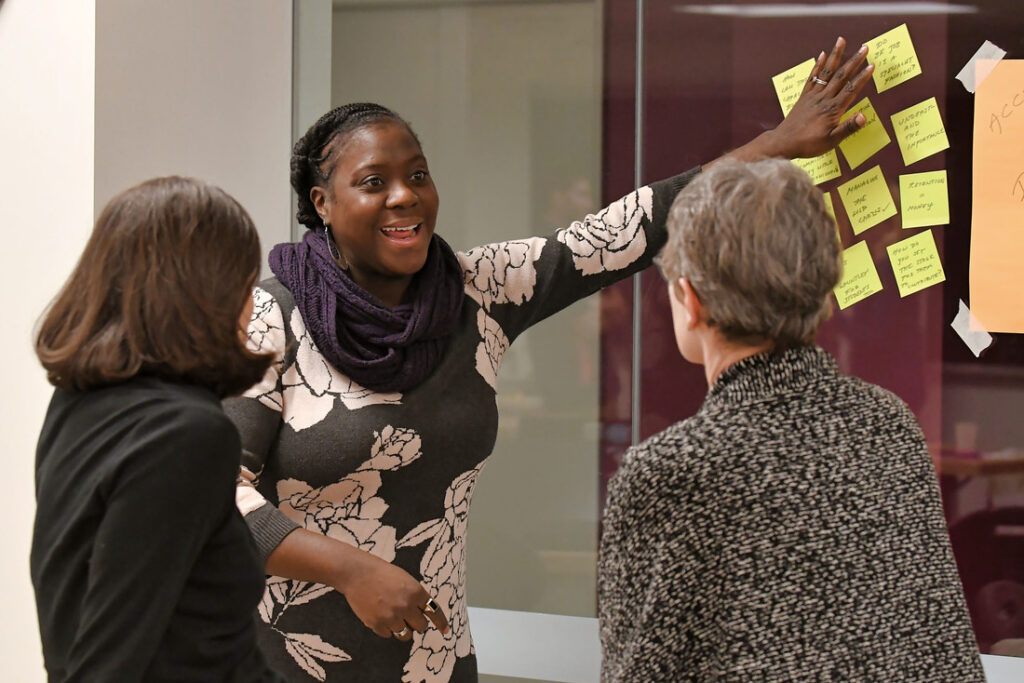Inviting inclusion in the workplace
 Wheaton dean urges employers to check in with staff on human level
Wheaton dean urges employers to check in with staff on human level
Establishing routines in the workplace is always important. For Shaya Gregory Poku, this is particularly true for meetings with staff members—especially now as institutions, organizations and companies are focusing on being inclusive, equitable and anti-racist.
Poku is dean for equity, social justice and community impact and co-chair of Diversity, Equity and Access Leadership at Wheaton. In an essay published Friday, July 31, on recruiter.com, she offers a fresh perspective on how managers can engage with staff members: Allow people to be human and heard—and listen.
“I have started every meeting I have facilitated for my direct staff the same way for the past seven years: with a human check-in. A human check-in gives each attendee an opportunity to share something that is on their mind,” writes Poku in “Expanding Your Anti-Racist Managerial Toolkit: How ’Human Check-Ins’ Can Build a Better Workplace.”
During that time, employees share whatever they want—feelings, celebrations, concerns and more.
“The common thread among these snapshots is that each is a moment for everyone on our team to share something beyond updates on their expected productivity goals. Employees have a minute to be human. They have a minute to be heard,” Poku continues.
“Managers across the country find themselves in a stark moment right now. The public outcry against systemic racism and the corrosive failures of our criminal justice system is more palpable than ever, yet the cries against workplace injustices are still smoldering.
“The racism of the white-collar workplace does not obliterate the Black body, but it violates Black minds and spirits daily. Routine silencing is one of the most dehumanizing and disempowering manifestations of racism, and managers often call into question the experiences of Black professionals or utterly discount them. The grim reality is that many people of color in the workplace feel their outputs matter, but their thoughts and concerns do not.
“This is where human check-ins can come in as one more tool in your anti-racist managerial toolkit.”
Poku overall stresses the importance of opening up space to air problems: “You cannot undo institutional racism without creating a culture wherein naming the realities of oppression—large and small—is part of your regular agenda,” she writes.
Read her full article: Expanding Your Anti-Racist Managerial Toolkit: How ’Human Check-Ins’ Can Build a Better Workplace

 Wheaton dean urges employers to check in with staff on human level
Wheaton dean urges employers to check in with staff on human level